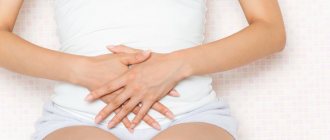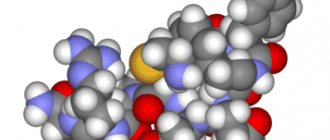From puberty to the end of reproductive age, every woman regularly faces problems associated with the monthly maturation of the egg. This is a cyclical process that is regulated at the hormonal level. That is, every month the level of different hormones changes, which is why the features of the premenstrual period are associated. Each woman's reaction to hormonal surges is individual. Therefore, PMS can manifest itself in different ways, and in some cases it can occur almost unnoticed by others and herself. Therefore, I would like to understand its reasons.
There are general trends that most ladies note. Irritability, increased fatigue, and nervousness are noticeable to everyone, but only the fat before menstruation remains a personal observation of every woman. Some people want to cope with it, others simply ignore it, considering the body’s natural need to periodically pamper itself with something tasty or sweet.
Is this need becoming a problem? Much here also depends on individual characteristics. Women with accelerated metabolism, who easily get rid of extra pounds, are more relaxed about such monthly changes. And for those who constantly monitor their weight, the question of why you want to eat a lot before your period becomes more relevant. Especially if they easily gain “excess”, and when you want to lose a couple of kilograms, you have to make serious efforts.
In order to eat properly during PMS and not regret the next “breakdown”, you should understand how a woman’s body works at different periods of the menstrual cycle. Why do you want to eat something all the time, what taste preferences are most often observed a few days before your period? And most importantly, how to cope with these sometimes poorly controlled desires? To find out the answers to these questions, let's take a closer look at how hormone levels change and how they affect appetite.
What causes PMS
Premenstrual syndrome is a complex of many symptoms. They appear in the second half of the monthly cycle, before menstruation begins. Doctors cannot clearly determine the cause. There are many theories outlining the manifestation of symptoms, but they do not contain the entire list. At the moment, the theory of hormones is in the lead.
The syndrome is manifested by hormonal changes. They depend on an increase in estrogen in the blood and a decrease in the presence of the hormone progesterone.
A possible factor in the occurrence of the syndrome is vitamin deficiency (deficiency of vitamins B6, A, trace elements calcium, zinc, magnesium). There is also a genetic factor: the type of PMS can be transmitted by heredity.
A short excursion into the physiology of the female body
A woman's menstrual cycle lasts on average 28 days and is divided into two periods of almost equal duration.
The first part of it is accompanied by a gradual increase in the hormone estrogen, as well as the woman’s smooth and excellent well-being. The final stage of the first period is the release of the egg into the uterine cavity and the start of ovulation.
From this moment, the concentration of estrogen that has reached its peak begins to gradually decrease and is replaced by progesterone. Its indicators begin to grow and prepare the body for a possible pregnancy, creating favorable conditions for the “population” of the embryo.
Just as the hormone progesterone increases, a woman begins to feel the onset of premenstrual syndrome (PMS), which brings with it a whole “collection” of unpleasant symptoms: deterioration in physical condition, mental disorders and a strong desire to eat something sweet. “I want something sweet” becomes a kind of addiction characteristic of this particular period of the month.
https://youtu.be/6fTux38pbtg
How does the physiology of girls work?
Menstruation is divided into periods. During the first, the egg matures in the follicle. While this process continues, the estrogen content in the blood increases. At a certain time during ovulation, its peak concentration accumulates.
After maturation, the egg enters the fallopian tube, and the body mobilizes all its forces for its probable fertilization. After ovulation, the amount of the hormone progesterone increases, which determines the development of the genital organs and regulates the menstrual cycle. This hormone creates conditions for the further development of the fetus and the normal course of pregnancy. It is then that the body requires a fairly large amount of easily digestible carbohydrates. They are sweets. It's completely normal if a girl wants to try them.
Progesterone is a precursor to many hormones, and if any change in its level occurs, problems cannot be avoided. Progesterone levels drop if conception does not occur. Then, at the end of the menstrual cycle, the levels of this hormone and estrogen in the blood drop to a low level, and this entails a craving for sweets, which will feed the body with the energy it needs.
Is it possible to overcome sugar cravings during menstruation?
You can try to resist cravings for sweets during menstruation, but, alas, you are unlikely to succeed. This is a physiological feature, and it is very difficult to fight against something that is caused by biological processes.
Of course, you have the option of replacing most of the chocolate and candy with sweet fruits and vegetables. But, let’s be honest, it will be “not at all the same” for your body.
Therefore, if you are worried about how not to gain extra pounds on the sweets that you crave so much during your period, there is only one way out: exercise. If you don’t want to go to fitness clubs, work on yourself at home.
If you are far from sports, no one forces you to exercise regularly - start a week before your period, and finish 7 days after it. This way you will quickly get rid of all the calories you consumed and will not gain weight, even despite all the sweets you ate on these special days.
The connection between menstruation and the desire to eat sweets
It's no secret that during menstruation girls have a good appetite. From the entire list of edibles, they look at the same pastries, cakes, chocolate, sweets - the list can be continued endlessly. The reasons for such manifestations may be the following:
- estrogen deficiency;
- acceleration of metabolism;
- the body's readiness for pregnancy;
- decreased insulin levels;
- loss of iron.
In the first part of the menstrual cycle, active production of estrogen occurs, so in the second period the body feels a high lack of it. The amount of serotonin in the body depends on the level of estrogen and progesterone. It is responsible for good mood, but during menstruation its level drops. Then the woman feels deprived of happiness, tired or completely depressed.
Estrogen deficiency encourages a girl to eat foods that have the property of improving mood by increasing the level of endorphin in the blood. Sweets help restore hormone levels and return the body to its previous state.
Every month, critical days change the metabolic rhythm. It speeds up and enhances digestion. For this reason, a woman’s appetite increases and there is a desire to eat as much as possible. Sweet foods contain sugar. It breaks down quickly and provides the body with the necessary energy.
The menstrual cycle is designed to prepare the body for pregnancy. This fact may answer the question: Why do you want to eat sweets before your period? The brain receives a signal about the need to accumulate vitamins, components that will help in the future development of the embryo. Therefore, the body tries to quickly replenish the missing substances:
- Potassium;
- Phosphorus;
- Magnesium;
- Iron;
- Chromium.
Magnesium is lost by the body in stressful situations. Reduced levels of Chromium often slow down carbohydrate metabolism, and the body begins to take glucose from the blood.
In the second period of the cycle, estrogen levels drop. A deficiency of this hormone leads to a weakening of insulin production. Its job in the body is to regulate blood sugar levels. Then you need to eat foods that have a low glycemic index. You should not fast during this period.
Is it possible to eat sweets during menstruation?
Experts say that you shouldn’t give up eating sweets during your period if you want to. Favorite sweet dishes and products help to more easily endure psycho-emotional changes and discomfort during critical days.
Attention! Many women are worried about gaining extra pounds due to the fact that they constantly want to eat sweets.
Nutritionists recommend following moderation and eating nutritiously, not forgetting healthy vegetables and fruits.
Is it possible to eat chocolate during menstruation?
Eating chocolate during menstruation is not recommended. This product provokes irritability because it has a stimulating effect. Chocolate can also cause acne due to hormonal changes.
Is it possible to eat ice cream during menstruation?
Food cravings may indicate a lack of vitamins. It is known that vitamin deficiency negatively affects the functioning of the body, in particular the digestive system.
Attention! Abnormal bowel movements and weight gain are symptoms of vitamin deficiency. This leads to changes in the taste of food and the formation of eating habits.
Women during menstruation often crave sweets, such as ice cream. It is advisable to exclude dairy products from the diet during menstruation, as they provoke flatulence and bowel dysfunction. In addition, cold dishes and foods can cause cramps.
Adviсe
It is difficult for a woman to exist in the modern world. They love to watch their figure, and this misfortune significantly complicates this process. It is important for a girl to know how to overcome the desire to eat sweets or reduce the harm from their consumption. Here are a couple of tips.
- If the body does not have enough phosphorus, eat cereals, fish and eggs.
- Setting aside time for dessert between 5 and 7 p.m. will fill your body with sweets for the day ahead.
- To get rid of the aftertaste of sweets and forget about them, brush your teeth after eating.
- Eating foods rich in protein helps normalize blood sugar levels.
You can use a method that depends on willpower. By controlling your diet, you can choose a moderate diet. If what you eat during your period puts on extra pounds, don’t worry. Excess weight will go away during the next menstruation.
Rest more, reduce stress, reduce the influence of the outside world on the nervous system. Ensure yourself a healthy 8-hour sleep, do not go on strict diets that limit the consumption of foods and vitamins the body needs. By changing your diet and creating a daily routine, the question of why you want sweets both on your period and on regular days will disappear.
How to deceive the body
Many nutritionists advise not to resist natural urges and not to deny yourself the pleasure of eating sweets during menstruation. This will make it easier to endure discomfort and depressive moods. The only thing that worries many women is the possibility of ruining their figure. The risk of gaining weight is really high, since it is very difficult to calm down a raging appetite and resist the desire to eat sweet or salty foods.
The best and most difficult option is to control the feeling of hunger and satiety, create a menu for every day and stick to a meal schedule. Here everything will depend on willpower, but if you take into account that difficulties arise with volitional manifestations before and during menstruation, you will have to use other ways to deceive the body:
- Eat regularly and often. Divide portions into several parts without increasing the volume.
- When choosing foods, pay attention to vegetables, fruits, lean meat and fish. You don't have to eat chocolate when you have a sweet tooth. An increased amount of glucose is unsafe for the female body. You can eat a banana or enjoy a spoonful of honey. Swap your favorite flour products for breads and cereals, they also contain a lot of fiber. If you want something salty before your period, you don’t have to eat chips and nuts. Cheese, lightly salted cucumbers, sauerkraut or crackers can be a useful substitute.
- Increase your fluid intake. This allows you to tame your appetite. Drink a lot, but only water, since coffee and juices, on the contrary, increase the desire to eat something.
- Distract yourself from thoughts about food. Walk, do your favorite things, read.
- If possible, avoid conflicts and stressful conditions during menstruation. After unpleasant stories and scandals, many people save themselves with their favorite delicacies.
It is very important to improve nutrition during menstruation, so we recommend reading additional information on this issue.
These measures will keep your figure attractive, at least critical deviations can be avoided. If you notice that you have gained weight, do not try to correct the situation.
During your period, it is better to forget about weighing altogether. Even if you starve yourself these days, the extra grams and kilograms will not go away. This is physiology. You'll have to wait and enjoy the results after your period.
Why does weight increase
Excess weight is an eternal concern for many representatives of the fair sex. Even 1 kilogram gained can make you want to get rid of it immediately. But let's consider all the reasons that can lead to weight gain before menstruation. And most importantly, we will learn how to react correctly to this process.
There are two main reasons for weight gain:
- Natural: fluid retention even with a normal, unchanged diet, and a slowdown in metabolism during ovulation
- Pathological: significant overeating due to hormonal imbalance and decreased estrogen levels in the female body.
In the first case, during menstruation (that is, after increased estrogen production) and before ovulation, the extra pounds go away by themselves and without any effort. In the second, everything that was eaten during PMS accumulates in the form of excess body weight. That is, overeating in excess of the norm and eating quickly absorbed carbons can gradually lead to obesity. What to do for those for whom the period before menstruation is associated with a constant desire to eat, and the diet on such days becomes especially unbearable? First of all, understand the mechanism of accumulation of extra pounds (we have already examined it). And then act in such a way as not to cause additional inconvenience to your own body during PMS.
Why does the body need table salt?
Does the body really need table salt? After all, children who have recently been born do well without salty foods.
In fact, salt is vital for humans. Breastfed babies need enough salt, which is found in breast milk. Adults need to get salt from food. After all, sodium chloride is involved in many important processes occurring in the body:
- Without sodium, acid-base metabolism cannot occur in the body. Only if there is a sufficient amount of sodium ions can red blood cells deliver oxygen to the tissues;
- together with potassium, sodium transports amino acids and glucose through cell membranes, providing them with nutrition and building material;
- sodium ensures the functioning of nerve endings. Thanks to sodium, communication is carried out between individual nerve fibers;
- sodium affects the functioning of the intestines: it helps absorb nutrients;
- Chlorine ions are necessary for the production of gastric juice in the stomach. In addition, chlorine is involved in the functioning of the central nervous system and is part of muscles and bones, as well as intercellular fluid.
Food cravings as a sign of vitamin deficiency or PMS
One of the possible factors influencing taste needs during menstruation is vitamin deficiency. Vitamin deficiency negatively affects the functioning of the digestive system. Frequent constipation during regular periods or diarrhea, nausea and uncontrolled weight gain are all its symptoms. Another sign is a change in the taste of food. Women may abandon their usual menu and become addicted to foods that they previously avoided. Obsessive desires appear: some people really want sweets, others for some reason are drawn to salty things.
Such manifestations, as in the case of PMS, are temporary. It is enough to replenish the balance of missing vitamins and everything will be restored. But with premenstrual syndrome, the desire to eat sweet or salty foods will return monthly. The reason is a lack of endorphins. Insufficient production of the joy hormone worsens mood, causing depression and despondency.
Your favorite delicacies help correct this condition a few days before your period, and the brain doesn’t care what the source of joy will be - a funny comedy, a beautiful dress or a piece of cake.
Sweets enter the body more often than other foods during the menstrual cycle. But eating chocolate will not solve the problem. Your mood will improve, but you are unlikely to be pleased with the sight of your figure losing its shape. Dealing with food addiction, especially during menstrual periods, is very difficult. Losing excess weight is much more difficult. The choice is yours!
Any woman knows that at a certain time of the month, even if she is not particularly fond of sweets, she has an irresistible desire to eat all the candies, chocolate and cookies in the house. That is why each of us has a strategic supply of sweets for such an occasion. First of all, it helps to improve your mood a little, and if you're lucky, you won't have to yell at anyone for no reason (which, let's be honest, also happens). But why do you even crave sweets during your period? Let's try to figure it out.
Australian nutritionist Melanie McGrice decided to find an answer to the chocolate puzzle by piecing together popular theories. Most scientists believe that the whole point is a hormonal imbalance that occurs in the female body during the menstrual cycle.
Because progesterone and estrogen levels naturally drop at the start of your period, this leads to unexplained feelings of hunger. But the level of serotonin (the “happy hormone”) also decreases, while the level of cortisol (the “stress hormone”) rises steadily. Therefore, you are not just hungry, but you dream of eating something that would immediately improve your mood. And most quickly - and our body has long been familiar with this information - sugar and carbohydrates cope with the task, so the body requires not just anything, but donuts with sprinkles, chocolate and Nutella.
Preparing the body for the upcoming pregnancy
View gallery
When the body is thoroughly preparing for pregnancy, a woman also craves sweets. This can be explained by the fact that after the completion of the ovulation process, the level of progesterone increases. Against this background, the brain receives a signal that there is a need to accumulate the necessary components and substances to maintain pregnancy. Due to the above processes, the female body requires sweet or salty foods before menstrual bleeding.
What does a woman want in different phases of the menstrual cycle?
Although experts say it is difficult to determine exactly what foods a woman will want before or after her period, it is generally known. For example, when a woman enters the second phase of her menstrual cycle (called the luteal phase), she will need something especially sweet. While in the premenstrual phase, she is more likely to crave foods containing starches or solid carbohydrates, such as bread and pizza.
It is interesting that many representatives of the fair half of humanity show a special penchant for chocolate both before and during the entire period described. And experts believe that this is not bad at all.
Dark chocolate, in addition to proteins, fats and carbohydrates, contains a harmonious combination of magnesium, potassium, phosphorus and antioxidants. Experts say that the tendency to it is due to fluctuations in the level of key female hormones such as estrogen and progesterone. Although the main reason may be that the magnesium present in chocolate can help relieve pain during menstruation.
It is an important enhancer of serotonin production. And if a woman’s body lacks magnesium, then the level of cortisol increases noticeably, which causes more stress symptoms in her.
The body of every person, including women, has individual characteristics. Therefore, it is impossible to say unequivocally that any representative of the fairer sex during menstrual bleeding craves sweets and pastries. There are girls who, in principle, cannot be classified as lovers of eating something like that.
Increased appetite before menstruation - normal or pathological?
To understand which state of health is normal and which indicates health problems, it is important to understand what processes occur in the body before menstruation. Therefore, let us recall some features of female physiology.
It is known that during each menstrual cycle the hormonal status in the body changes in a certain way. Each hormone has its own, rather strongly expressed effect. But for our topic, the most important processes are those occurring in connection with the influence of progesterone.
The role of progesterone
The level of this hormone begins to increase after the release of the egg. Its role is to provide ideal conditions for the development of pregnancy.
There are several aspects of how progesterone affects the female body:
Such changes occur in the second half of each menstrual cycle.
Why do you feel hungry before your period?
Everything described above greatly affects appetite. Under the influence of progesterone, the body tries to accumulate nutrients both for the woman so that there are enough of them to bear the pregnancy and for the unborn baby. Therefore, a woman has to eat a lot - “for two.” This explains complaints about eating before menstruation.
This is how the body prepares for motherhood every month. The fact that pregnancy has not occurred will become clear at the end of the cycle, and the body will stop demanding food, the woman will eat as usual. During or after menstruation everything goes away. But after a couple of weeks the cycle repeats and again you have to deal with increased appetite.
To make this struggle as easy as possible, and to avoid eating before your period leading to weight gain, you need to try to eat light foods, exclude fatty, fried, salty foods, alcohol, and drink clean water. If your appetite increases too much before your period and interferes with leading a normal lifestyle, you need to visit a gynecologist and check your hormone levels.
When gluttony became uncontrollable
When gluttony during menstrual periods has become a real problem, you can resort to some ways to resolve it, including:
- taking hormonal contraceptives. These drugs will make it possible to reduce the symptoms of premenstrual syndrome by influencing the feeling of hunger. Thanks to these medications, a woman’s hormonal levels are gradually normalized, which helps to improve her well-being and dull the excessive desire to eat chocolate;
- Following a moderate diet will make it possible not to waste time thinking about why you want sweets during your period, but to solve the problem through specific actions in the form of a moderate diet.
What does the body need if it craves salty foods?
The desire to eat salty foods indicates a lack of chlorides and natural minerals. What can cause the body to starve of these substances?
- Strong physical activity.
- After serious stress.
- Pregnancy.
- The presence of an inflammatory process in the body. People especially often eat over-salted food if they have problems in the genitourinary system.
Sea and river fish, seafood, meat, nuts, and seeds will help replenish chlorides and natural minerals. Unrefined sea salt will be very useful in this case.
How to deal with gluttony
What is the best thing to do during PMS:
These simple tips will help keep your body healthy at any time. And before you worry about the kilograms you’ve gained, check your dynamics. Perhaps you are worrying in vain, and a small increase is just the result of natural processes that will disappear in the first period of the menstrual cycle.
Reactions to hormonal surges in women are individual. This applies not only to physical and psycho-emotional states, but also to taste preferences. During menstruation, some people for some reason crave sweets, others crave salty foods, and still others cannot resist hearty buns. Take it easy. A raging appetite and unusual desires are not a deviation, but a coming and going sign of menstruation, the only unpleasant consequence of which can be extra pounds.








